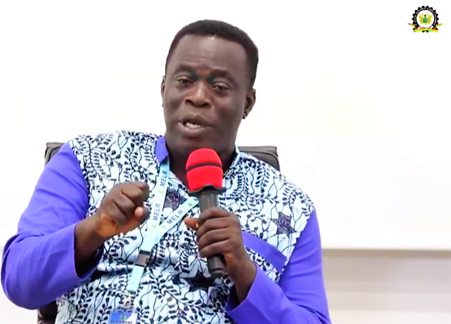The Ministry of Employment and Labour Relations is pushing for a mandatory labour based planning document to be attached to all government projects moving forward. According to the ministry, the move will afford the government the opportunity to track the number of people each of its projects employ and uses the data for planning purposes.
The Minister of Employment and Labour Relation, Ignatius Baffour Awuah, said the labour-based project planning initiative is being aggressively pushed at cabinet level and is likely to be a key feature in all government projects soon.
“In whatever we do, no matter the ministry, department or agency, the issue of job should be core. For instance, if a contract is being given for the construction of a road, we usually ask for how much price and date of completion but hardly do we ask for the number of people that you are going to engage in executing that particular project.
So, one of the issues that the Ministry of Employment and Labour Relations has been championing at cabinet is to do an advocacy for labour based planning in almost everything that we do. I want to believe that, should we continue our work after the election it will come up.
At the National Tripartite Committee level and the Social Partnership level, we have been discussing this thoroughly. Without planning for labour in our day-to-day management issues, we may concentrate on some non-core issues,” Mr. Baffour Awuah said at the 12th National Development Planning Commission Forum on the theme: The Future of Work in Post COVID-19 Ghana.
Speaking on the theme, Mr. Baffour Awuah said the pandemic had exposed the weaknesses of the labour market, business report systems, and social protection. As a result, “The challenges for the future of work are eminent and COVID-19 has given us a foretaste of things to come”, he added.
For him, this is why a labour based planning document would be important as the government would use the data to develop deliberate policies to drive employment numbers upward and identify the number of people each sector can employ.
He hinted that there was a need to also have a look at other sectors such as farming where climate change, deforestation and water pollution are already pushing a lot of farmers in the rural areas out of work because the soil is no longer good for farming. He said that as the country prepares to enter the post-COVID-19 era it must learn lessons and put in place sustainable policies, measures and mechanisms to ensure social justice and effective transitioning into the future.
“We must invest in technological and innovative work processes to promote the employment and productivity enhancement objectives of government, and also invest in effective business development policies and programmes that provide support and ensure that enterprises are resilient to the changes anticipated for the future of work in Ghana,” he added.










